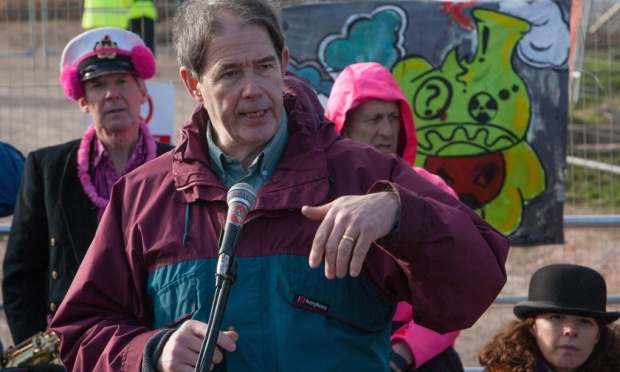Engaging with major fossil fuel companies on climate change has become futile, according to one of the UK’s most esteemed environmentalists who spent years working on sustainability projects with BP and Shell.
Jonathon Porritt said “hydrocarbon supremacists” at the companies had successfully ousted reformers wanting to diversify into green energy.
The founder director of non-profit consultancy Forum for the Future (FFF), said: “We came to the conclusion that it was impossible for today’s oil and gas majors to adapt in a timely and intelligent way to the imperative of radical decarbonisation. We felt we had no option but to end our long-standing partnerships with both Shell and BP.”
Porritt brought the Ecology Party – now the Green Party – to prominence in the 1970s and was later director of Friends of the Earth. He has advised the Prince of Wales, Marks & Spencers and many others.
Writing in the Guardian, Porritt said: “These are companies whose senior managers know, as an irrefutable fact, that their current business model threatens both the stability of the global economy and the longer-term prospects of humankind as a whole. It got harder and harder for me to look them in the face knowing what they knew, and witnessing at first hand the intricate patterns of denial and self-deception that they were forced to adopt.”
Oil, gas and coal companies are being targeted by a fast-growing campaign that aims to stigmatise them by persuading investors to dump their fossil fuel shares, a call backed by Archbishop Desmond Tutu, the Rockefeller Brothers Fund and others. In parallel, a series of authoritative analyses have shown that only a quarter of existing, exploitable fossil fuels reserves are burnable if global warming is not to exceed the dangerous 2C level agreed as the limit by the world’s nations.
One counter-argument to divestment has been that holding on to shares and engaging with the companies is more effective in driving change. The Church of England has resisted calls to divest its endowment completely for this reason. “Our approach is to get stuck in on ethical issues and try and have a positive influence,” said Church Commissioner Edward Mason in December.
But Porritt said this time has now passed and that the unburnable carbon analysis has left the fossil fuel companies “entirely unmoved”.
“There was a time when I seriously persuaded myself that it was still just about possible for companies like Shell and BP to find some way of transitioning into ‘fully-integrated energy companies’, investing as much in renewables, storage and efficiency as in hydrocarbons, instead of reverting to what they are today: pure-play hydrocarbon dinosaurs,” he wrote in a recent blog. “It didn’t happen. Worse yet, the lengths they went to to justify their continuing investments in new hydrocarbons have become more and more extreme.”
Over $670bn (£442bn) was spent in 2013 exploring for new fossil fuels reserves. Shell is spending billions on Arctic exploration and Canadian tar sands projects, both of which were deemed incompatible with preventing dangerous climate change according to a recent analysis in the journal Nature.
“With BP the moment [for transition] came and went under the leadership of John Browne and with Shell, it pretty much died after Mark Moody-Stuart moved on,” Porritt wrote in the Guardian. “In both companies, the hydrocarbon supremacists rapidly regained the ground they’d lost: doing renewables as Corporate Social Responsibility was fine, but anything that threatened to go seriously ‘beyond petroleum’ was deemed to be deviant heresy.”
Shell, Exxonmobil and Statoil have all been forced to respond recently to concerns about a “carbon bubble”. This is the suggestion that promised international action to curb climate change by drastically cutting fossil fuel burning will make many fossil fuels reserves worthless in the future, an idea being taken seriously by the Bank of England, Goldman Sachs, Citibank and other financial institutions.
Porritt said fossil fuel companies are ultimately doomed, if not in the short term. “It has been quite a painful journey for me personally. I so badly wanted to believe that the combination of reason, rigorous science and good people would enable elegant transition strategies to emerge in those companies,” he said. “But we learn as we go. And go those companies surely will, if not in the near future.”
Note: The Rockefeller Brothers Fund have divested from fossil fuels, not the Rockefeller Foundation as the original version of this article wrongly stated.

